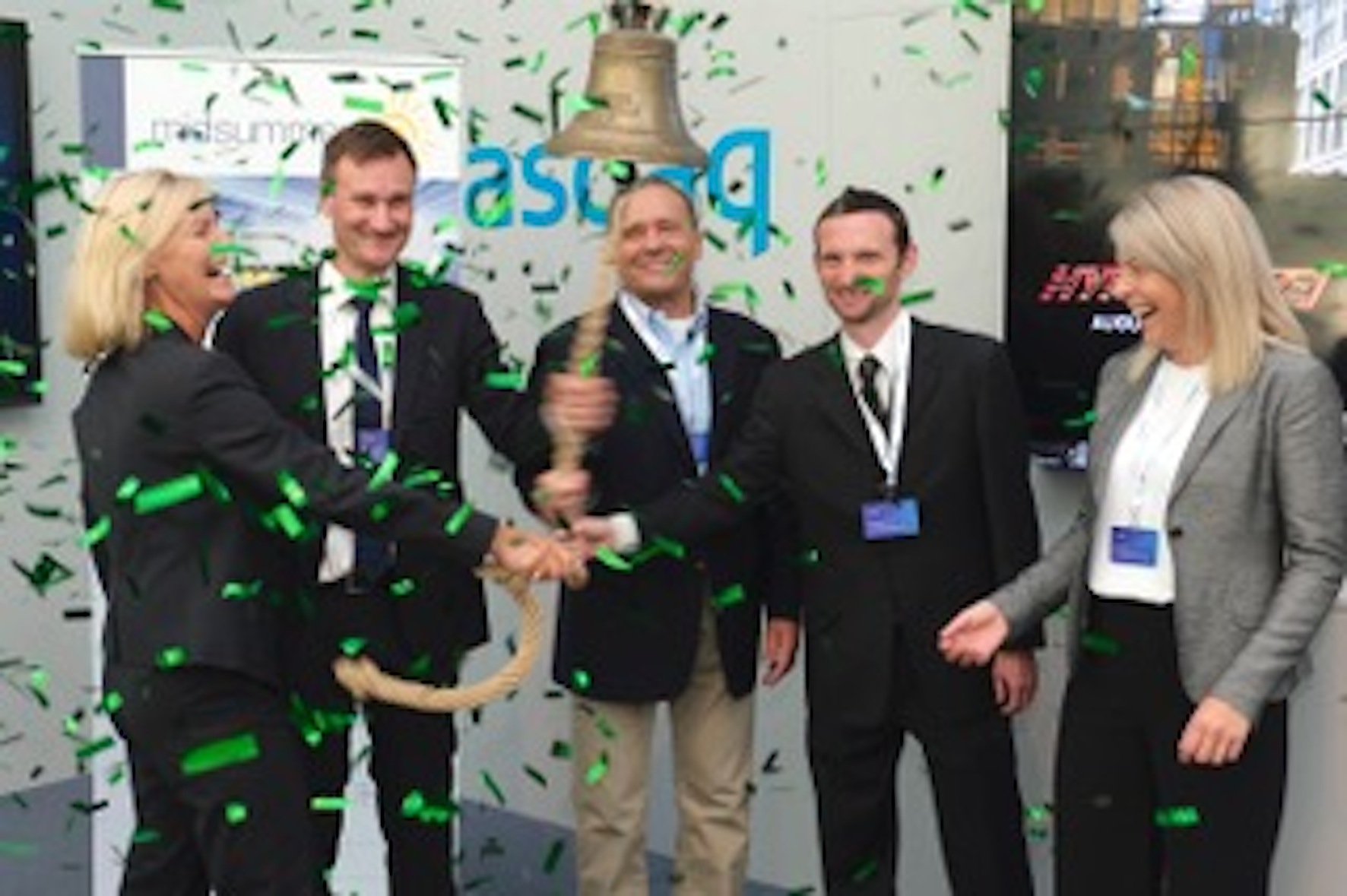Midsummer starts trading Green Bonds

Swedish CIGS Solar energy firm rings opening bell at Nasdaq Stockholm
Swedish CIGS solar energy firm Midsummer has once again rung the opening bell at Nasdaq Stockholm and started the trading for its Green Bond listed on the Sustainable Bond List of Nasdaq Stockholm.
The CEO, employees and members of the board of solar energy technology leader Midsummer was today present at Nasdaq Stockholm to ring the opening bell for listing of the Green Bond at the Sustainable Bond List of Nasdaq Stockholm. Trading of the Green Bond, which was issued on 25 April 2019 with an amount of SEK 200 million [$20.6m], has now started on the Sustainable Bond List of Nasdaq Stockholm.
The Green Bond opens up for expansion
With the Green Bond listed on Nasdaq on the Sustainable Bond List of Nasdaq Stockholm, Midsummer will continue to expand at the factory in Järfälla, Sweden. The production capacity is being expanded and during the summer the company has received new equipment to further increase its production capacity.
“With the Green Bond listed on Nasdaq on the Sustainable Bond List of Nasdaq Stockholm we will be able to capitalise on our strong business momentum. We are encouraged by the strong interest for our strategy, business model and the interest to financially support Midsummer’s continued efforts to further strengthen our leading position within the rapidly growing market for light weight thin film solar cells”, said Midsummer’s CEO Sven Lindström.
Midsummer has a distinct sustainability profile and sustainability is a natural and integrated part of the company’s business. The proceeds from the Green Bond will be used to facilitate production and distribution of solar panels and solar cells; production of solar cell manufacturing equipment; research and development of solar panels, solar cells and manufacturing equipment as well as providing financing solutions for sales of the manufacturing systems.
Minimal carbon footprint
Midsummer's production process for thin film solar cells is said to have a minimal carbon footprint compared to other production processes for solar modules, for example for silicon modules, which has been confirmed by life cycle analyses carried out by independent environmental analysis companies. An ever-increasing focus in renewable energy is now directed towards the total carbon footprint, i.e. not only the amount of energy that the end product consumes or produces, but also the amount and type of energy required for the manufacture and operation of the product - a discussion that has exploded when it comes to e.g. electric vehicles. Midsummer's flexible thin film solar cells have a carbon footprint of only 1/10 of what silicon panels have.


































